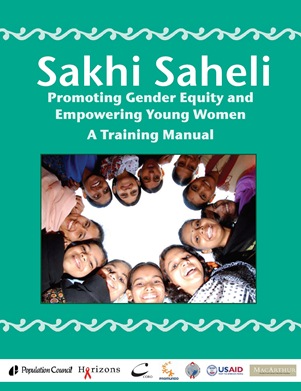This guide specifically seeks to promote women's reproductive rights in India but presents methods and specific participatory tools that can be adapted to other issues and contexts, like women's land rights.
[From the FAO website] This training initiative provides a space to young women and girls to question and challange existing inequitable gender norms; promote positive constructs of gender and identity; improve their understanding about their body; their feelings and sexuality; and promote sexual and reproductive health.
The manual has five sections and in each there are a series of activities, lasting for about two hours and planned for use with groups of young women. In total, there are 25 group educational activities that are based on participatory methods of learning with extensive use of role plays, games and interactive exercises that engaged young women in discussion, debate and critical thinking. Through these educational activities, this training seeks to promote critical reflection on the social construction of gender that promotes inequality and women's vulnerabilities and to create support for challenging these norms so as to enhance the agency that women have in adopting risk reduction practices.
The five main sections of the manual are: 1. Gender and Identity; 2. Sexuality, Reproductive Health and Rights; 3. Violence; 4. Motherhood and Caregiving; 5. Preventing and living with HIV/AIDS.
You can download this manual from the Population Council's website.

